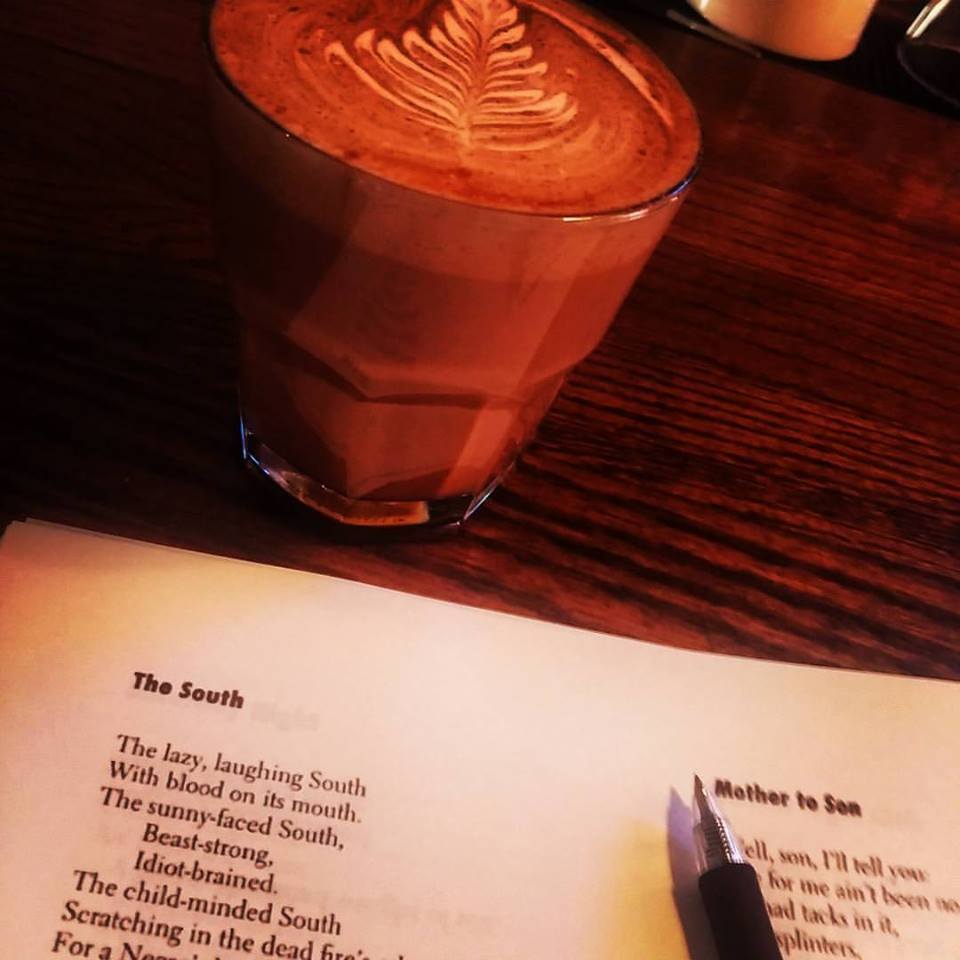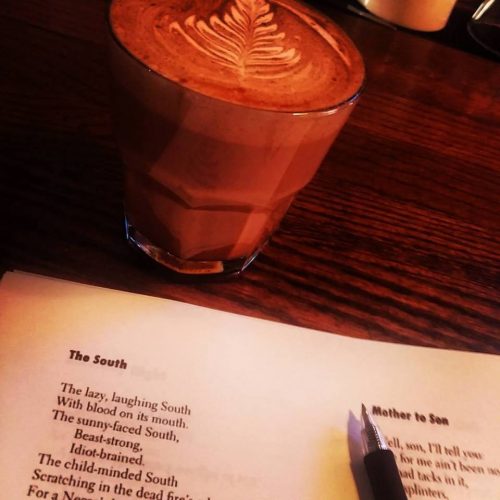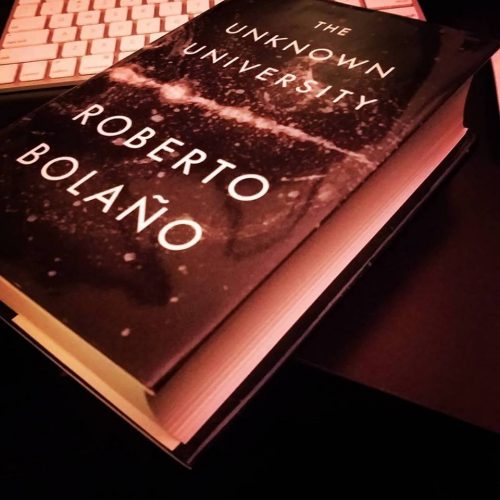
You Should Be Writing Reviews

Reading Langston Hughes and making notes. Coffee is optional, though generally encouraged.
Anyone who tells you that reading poetry is slow or difficult clearly has never had to finish a book of poems in the hour before a class discussion; the motivated student can blitz from the front cover to the back cover and have time to grab a coffee in that hour. Of course, that’s a student who is motivated to finish the book more so than a student who wants to get something out of the book. The reality is that you’ll probably get more out of reading that book if you focus on a handful of poems, write down your thoughts on them, and go over them with your class than if you reach that back cover. What do you do when you’re outside of an academic setting, though?
While I and most writers I know take notes while reading, that’s something a little different than giving a stanza or a poem a truly generous reading, writing about what works (and maybe what doesn’t, too).

The Unknown University isn’t the kind of poetry you finish in an hour, let alone a day or a week. Review notes and dog-eared pages make it easy to return to favorite parts.
The drive to do that extra bit might be there for a group discussion or class meeting, but I’ve found that giving myself the homework of writing a short review—maybe 500 words or so—of any book I read has caused me to be more thoughtful in the reading and can also serve as a great starting point for a day of writing, much like kickstarting the brain with simple exercises or journal writing.
If you have a Goodreads account, posting your reviews or blurbs on there can help other readers find books they’ll love (or avoid books they’ll hate), and it’s great preparation for working on Columbia Poetry Review, as we review books on our blog. But it’s also just a good habit to get into if you want to be an active reader of anything, as it pushes you toward both articulating your thoughts on a piece of writing as well as striving for concision in those thoughts. Stretch out beyond reviewing poetry or books to develop an idea of what your tastes are in movies, music, or other media and be able to share that with others—you might even find yourself with a portfolio of critical work that could help when pitching for paid gigs during or after your MFA at Columbia.
